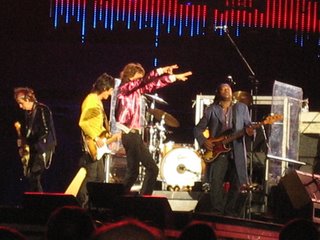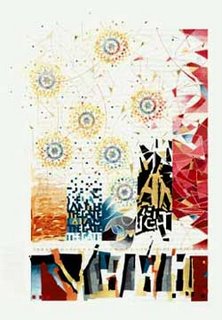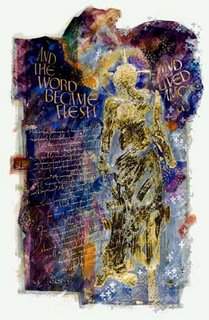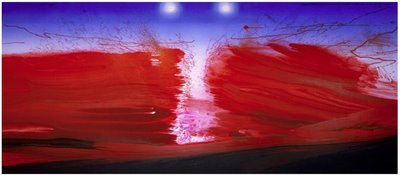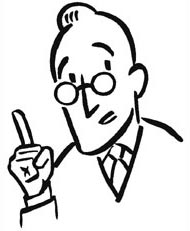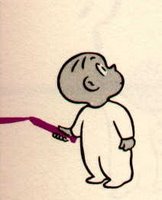I'm preaching a lot these days. Here is the full text of my sermon for this Sunday based on Ecclesiastes 1:1-9 and Mark 7:31-37 with a prayerful intention of thinking about the fifth anniversary of 9/11. So, here goes:

If you see something, say something.
“As part of an ongoing effort to make and keep its network safe,” the Metropolitan Transit Authority of New York City introduced this slogan right after the attacks on the World Trade Center five years ago. For five years, this slogan has been part of my commute and my travels. Whether I was going to church or to get groceries, this slogan confronted me. On posters all over the subway car and over the loud speaker,
If you see something, say something.
Maybe you have felt this discomfort too – a discomfort in seeing. As you have traveled on buses or planes, you too have noticed that you have seen the other passengers a little differently. No matter how you resist it, something has changed our perception of these fellow travelers. Something has changed in our post-9/11 world.
Or has it? Perhaps it is as it is written. There is “nothing new under the sun.” Maybe “what has been is what will be, and what has been done is what will be done.” Or maybe this is the age-old story of learning from our past. Without making accusations or pointing fingers, we are still trying to figure out what it is that we do see, so that we might say something. But, what in the world could this mean for us five years after the towers fell in New York?
No doubt, you’ve heard it said before: if we do not learn from our history, we are doomed to repeat it. President Bush even offered this wisdom earlier this week as he reflected on a terror-free world. But, as Christians that share a very particular history, I’m not so sure that this is our doom. Instead, as a living tradition, our shared sacred stories reveal something that is very much alive.
Take Mark for example. Before the gospel author could sit down to write his account of the Jesus Movement, trouble was brewing in Jerusalem. Thirty years before Mark wrote about “the beginning of the good news of Jesus Christ,” the Roman Emperor Caligula declared himself a god and ordered his likeness to be placed in each and every Jewish Temple.
If you see something, say something.
The powers of Rome were never really sympathetic to the enormous abomination this was for the Jews. Tradition forbade any images – especially of God – to be displayed in the Temple. But, Caligula’s order ignored this entirely.
And so, the Jews revolted. And it just got worse. It got so bad in this revolt – this revolt that some even called a war – that Jerusalem fell and the Temple was destroyed. With this profound loss, Mark sits down to write his gospel story about this Jesus character.
“Why had it all happened? What had gone wrong?” These must have been Mark’s questions. We know these questions. We know these questions because five years later, these are still our questions. Like Mark, we are still trying to make sense of all that has happened.
And for Mark, making sense of the war means looking to Jesus. This isn’t surprising to us. We know how the story unfolds. But in the midst of all of this grief and loss, Jesus seems like a strange choice. I mean, isn’t it strange how Jesus behaves in this gospel story? When the disciples bring Jesus this “deaf man who had an impediment in his speech,” Jesus takes him aside. Jesus takes this man in private – away from the crowd. Behind closed doors. And of course, “closing doors raises suspicions immediately.” But behind these closed doors, there is Jesus the healer.
Maybe that’s what Mark wants us to see. Jesus the healer. Mark invites us to relax and relieve ourselves of our guilt from any suspicious glances we might offer. Mark gets it. He understands the cultural dynamics that make Jesus’ activity strange. But even behind these closed doors, we can’t help but be a little suspicious.
But mark understands and wants us to meet Jesus the healer. With a little spit, a sigh and a magic word, Jesus heals this deaf man. His ears are opened. His tongue is released and he spoke plainly. It’s all a little suspicious. But, maybe this strange behavior is exactly what we need. Maybe what Jesus does or where he does it doesn’t matter as much as that he is simply there.
Two weeks ago, my grandmother strained her back. While lifting a fan to relieve her of the summer’s heat, that old pain in her back flared up again. She was taken the hospital and put “on drugs” to the family’s jokes. A couple of days later, I traveled the seven hours to be with her. I didn’t do very much – a little cooking, a little cleaning and some grocery shopping. But, mostly, I just sat with her. And all that mattered was that I was simply there.
It was something that I had learned this summer. While immersed in the intensity of hospital chaplaincy, I learned that what really mattered for my patients was simply that I was there. I was there to listen. I held their hands. And sometimes I even prayed. I wanted to be able to spit, sigh and say a magic word that would make the pain disappear. But, I knew that all I really could do was simply be there.
And most of the time, it doesn’t feel like enough. Maybe it’s not even enough to say that what really mattered was that Jesus was there. Behind closed doors, is this what really matters five years after the attacks on the World Trade Center? Is this what really matters when more lives have been lost since the attacks then on that sad day in September? After all,
If you see something, say something.
We’re supposed to tell. Even the deaf man must tell what he has seen. As Christians, we are not supposed to keep this “good news” to ourselves – behind closed doors. We are supposed to share it. We are supposed to share the mystery and wonder of Jesus ministry with anyone that will listen.
But Mark knows our pain. Mark knows our loss. Even after five years of sharing the stories since 9/11 and the 2000 years that we have tried to make sense of the death of Jesus, Mark knows that there is still pain. Even with the distance of time, it still hurts. It doesn’t matter if you lived near New York, just as it didn’t matter whether or not you lived near Jerusalem. The loss still hurt. And maybe that’s what Mark wants us to see. Jesus is there. Perhaps all that really matters is that we are here for each other.
In one of my favorite tracks off Mary Chapin Carpenter’s most recent album, she sings about an ironworker who she had heard about in an interview. In the interview, the ironworker had explained his commute home after working on the “pile” that remains from the attacks. He would take the subway to Grand Central Station so that any souls might follow him. He would stand on the platform and wait for any of these souls that might want to “catch the train home.”
This ironworker was simply there. Without any spit, sighs or magic words, this man stood in where Jesus might have.
Perhaps indeed there is “nothing new under the sun.” It’s just how it was for the deaf man. But, instead of Jesus behind closed doors, it’s an ironworker standing on a platform.
In his reflection upon the release of the emergency call tapes from that fateful September day, Garrison Keillor remarks, “what we crave is reality.” And while I want to offer a Prairie Home Companion “Amen!” to his words, I think we might need a little more than reality. And somehow, I think that the ironworker riding the #6 train to Grand Central Station might have seen it. Maybe it was over the loudspeaker or on a poster,
If you see something, say something.
And that ironworker knew. He had seen something, and he knew that he had to say something to honor the memory of those that passed. And that’s what he did. Standing on a platform in Grand Central Station, that ironworker said something for those that could no longer speak.
It’s just as it was written. “What has been is what will be, and what has been done is what will be done.”
But, this time, it’s our turn to make sense of the past five years. It’s our turn to stand in Jesus place. No spitting. No sighing. No magic words. Five years later, wherever our platform might be, it’s our turn simply to be there.



